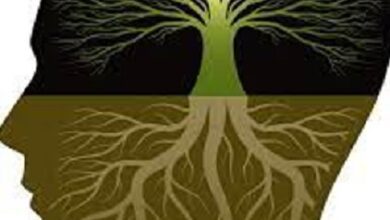Research Writing
Research Writing
Research writing is a process of inquiry that involves gathering and analyzing information in order to answer a question, solve a problem, or explore a topic. Research writing is often used in academic and professional contexts, such as in research papers, dissertations, reports, and articles.
The research writing process typically involves several stages. The first stage is selecting a research topic or question. This involves identifying a problem or area of inquiry that is of interest to the researcher and that has not already been extensively studied. The research question should be specific and focused, and should be framed in a way that can be answered through research.
The next stage is conducting a literature review. This involves gathering and analyzing existing research and scholarship on the topic of inquiry. The literature review provides the researcher with an understanding of what has already been studied, what gaps exist in the research, and what questions remain unanswered. The literature review also helps the researcher to identify key theories, concepts, and methodologies that will be relevant to their own research.
The third stage is developing a research design. This involves determining the methodology that will be used to gather data and answer the research question. The methodology may involve collecting data through surveys, interviews, observations, experiments, or other methods. The research design also includes developing a plan for analyzing the data that is collected.
The fourth stage is collecting and analyzing data. This involves actually carrying out the research, gathering data, and analyzing it in order to answer the research question. Data analysis may involve statistical analysis, qualitative analysis, or a combination of both.
The final stage is writing up the research findings. This involves communicating the results of the research in a clear, concise, and organized manner. The research report typically includes an introduction, literature review, methodology, results, discussion, and conclusion. The introduction provides an overview of the research question and the purpose of the study. The literature review summarizes the existing research on the topic. The methodology describes the research design and the methods used to gather and analyze data. The results section presents the findings of the research. The discussion section interprets the results and explains their significance. The conclusion summarizes the main findings and implications of the research.
Research writing is an important tool for generating new knowledge and understanding in a wide range of disciplines. It allows researchers to explore new ideas, test hypotheses, and make contributions to their fields. Moreover, research writing helps to promote critical thinking skills, as researchers must evaluate evidence, analyze data, and interpret results in order to draw conclusions. In addition, research writing plays an important role in professional development, as it allows researchers to communicate their findings to colleagues and stakeholders, and to contribute to ongoing debates and discussions in their fields.
-
Tips for writing a good essay/essay text/Characteristics of a dissertation
What is an essay text? The dissertation text – or dissertation – is a type of text, of a theoretical nature,…
Read More » -
How to write a report/purposes/Structure/Tips for making a report
What are the purposes of making a report? The report is a type of work that serves to expose the results and…
Read More » -
What is an opinion article/Characteristics/How to make an opinion article
What is an opinion article? The opinion article is, as its name suggests, it is a text in which the author…
Read More » -

Philosophical Knowledge definition features and examples
Mainly characterized by questioning based on logic and reason, philosophical knowledge arose from the need to find wisdom by distancing…
Read More » -
Ethnographic study/How to find participants/How to do analysis
In market research, an ethnographic study aims to decipher the cultural roots of consumer behavior, in order to find out how a…
Read More » -
Pfeiffer questionnaire/used for/how is it done/questions
The Pfeiffer questionnaire has become one of the most useful tools in the field of medicine for the detection of cognitive impairment,…
Read More » -
Archetype analysis/Characteristics/How to perform
The Archetype analysis is an innovative research methodology both in the field of academic research and market research. For this reason,…
Read More » -
What is mixed sampling/methods used in/strategies/Characteristics/types
In many cases, the nature of a study or the resources available require mixing several types of sampling, which is…
Read More » -
What is a field journal/Functions/writing observations/4 characteristics
The field journal is one of the most important companions when conducting a study in a particular setting for a considerable…
Read More » -
Face to face survey/Types/Advantages/How to conduct
Face-to-face surveys Although online surveys are a fantastic tool for data collection, a face-to-face survey is still one of the…
Read More »